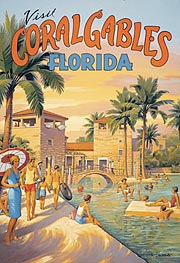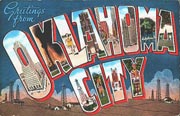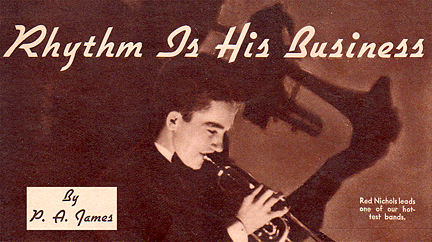 As the Pitch Perfect series continues, today we feature a 1949 collection of advertising slogans used to market cities and civic campaigns.
As the Pitch Perfect series continues, today we feature a 1949 collection of advertising slogans used to market cities and civic campaigns.
America’s birthplace (Plymouth Colony Assn.), Plymouth, Wisc.
America’s dairyland (Wisconsin).
America’s home town (Plymouth Colony Assn.).
America’s lake country (The Thousand Lakes Assn.), St. Paul.
America’s Mediterranean (Miami Shores), Miami.
America’s only tropics (Coral Gables), Miami.
At the seashore, in the country, near the city (Lido Beach), New York.
Birth state of the nation (Pennsylvania).
Center of scenic America (Salt Lake City).
City that does things, The (Norfolk, Va.).
City of destiny (Tacoma).
City of industrial opportunity, The (Warren, Pa.).
Clean up and paint up (Nat. Clean Up Campaign Bureau), New York.
Clean, paint up and fix up (Nat. Clean Up Campaign Bureau).
Climate best by government test (Redwood City, Calif.).
Cool off in Colorado.
Cordage city, The (Auburn, N. Y.).
Crossroads of the Pacific (Hawaii).
Dallas is the door to Texas.
Double crossroads of America (Indianapolis).
Dynamo of Dixie, The (Chattanooga, Tenn.).
Enchanted land of opportunity, Florida.
 Find your place in the sun (San Francisco Peninsula).
Find your place in the sun (San Francisco Peninsula).
For cleanliness, thrift and civic pride (Nat. Clean Up Campaign).
Forging a share in victory (Thompson McLaughlin Co.), Portland, Me.
Forward with Memphis, since ’69.
Give them life and make it worth living (United Jewish Appeal).
Give to conquer cancer (American Cancer Society).
Good citizenship is good business (Nat. Clean Up Campaign).
Great state in which to live and work, A (Rhode Island).
Heart of America, The (Missouri).
Heart of the fruit belt, The (Benton Harbor, Mich.).
Help others help themselves (Salvation Army).
Hub city of the southeast, The (Spartanburg, S. C.).
Hub of the Americas (New Orleans).
Hub of the highways, The (Cape Girardeau Bridge, Mo.).
Hub of world flight (Mass. Development & Industrial Comm.), Boston.
Inside the sins of adventure (Manitoba, Canada).
Isle of June (Nassau Development Board, Nassau).
It is profitable to produce in Massachusetts.
Read More »



